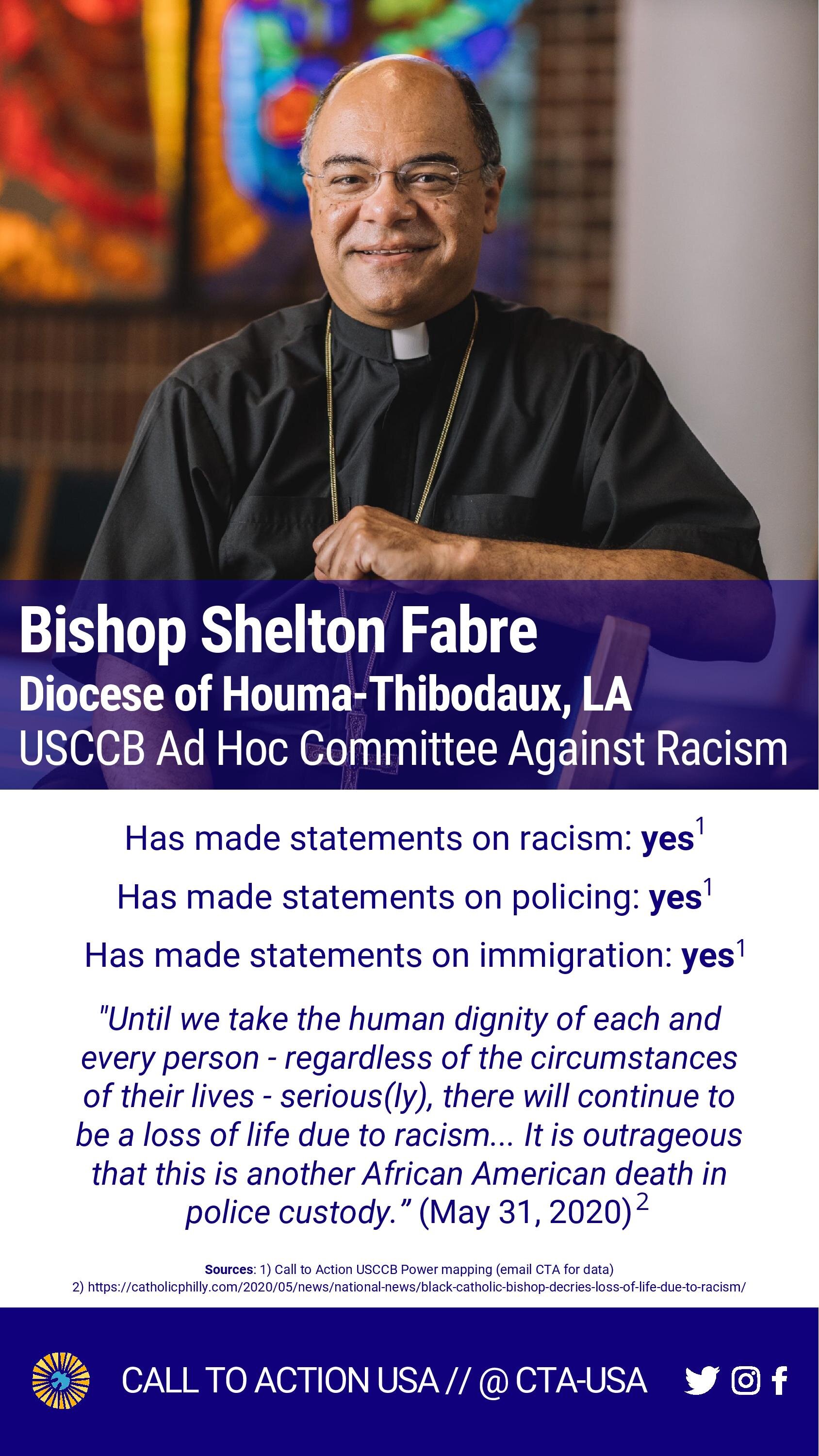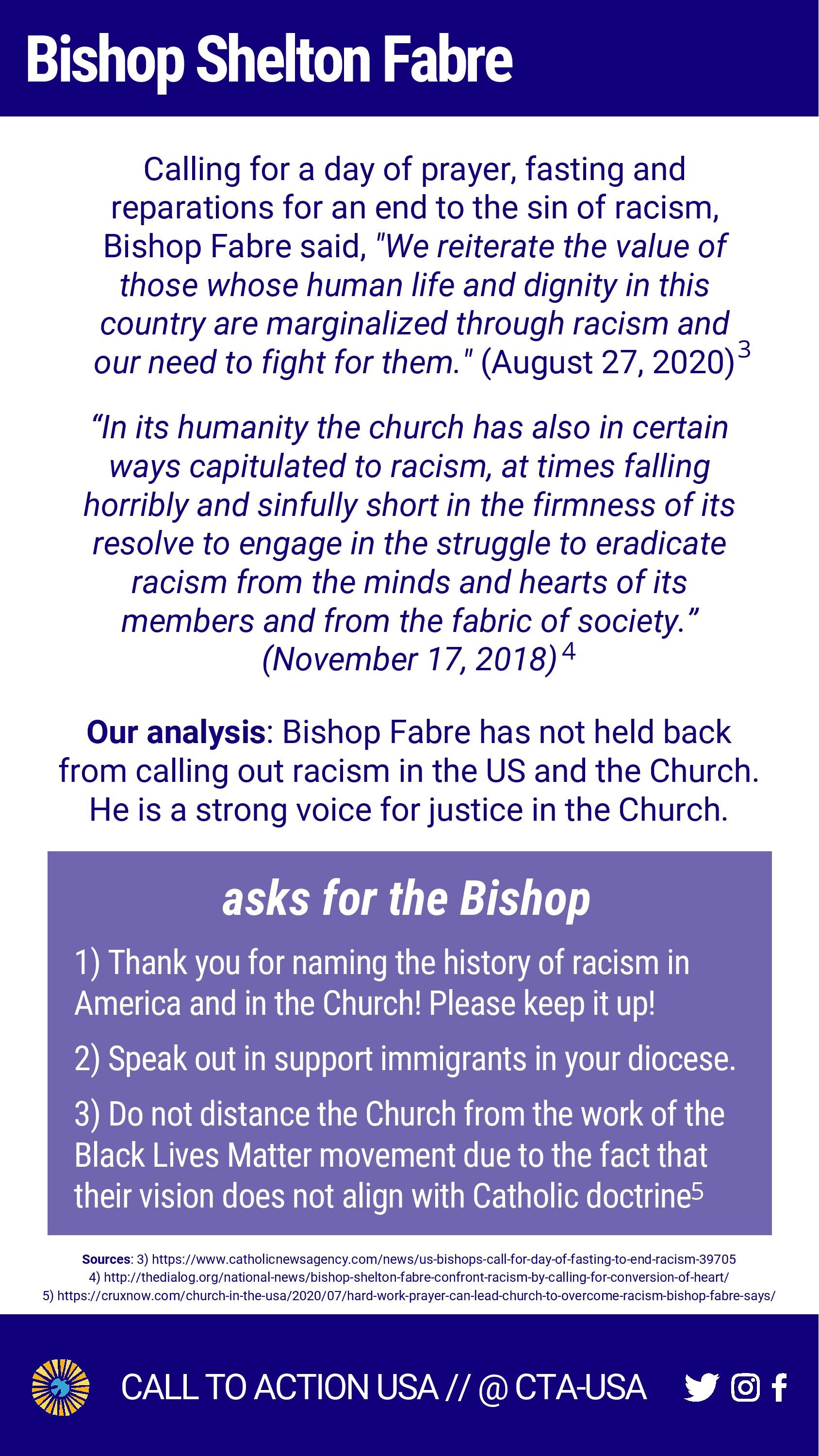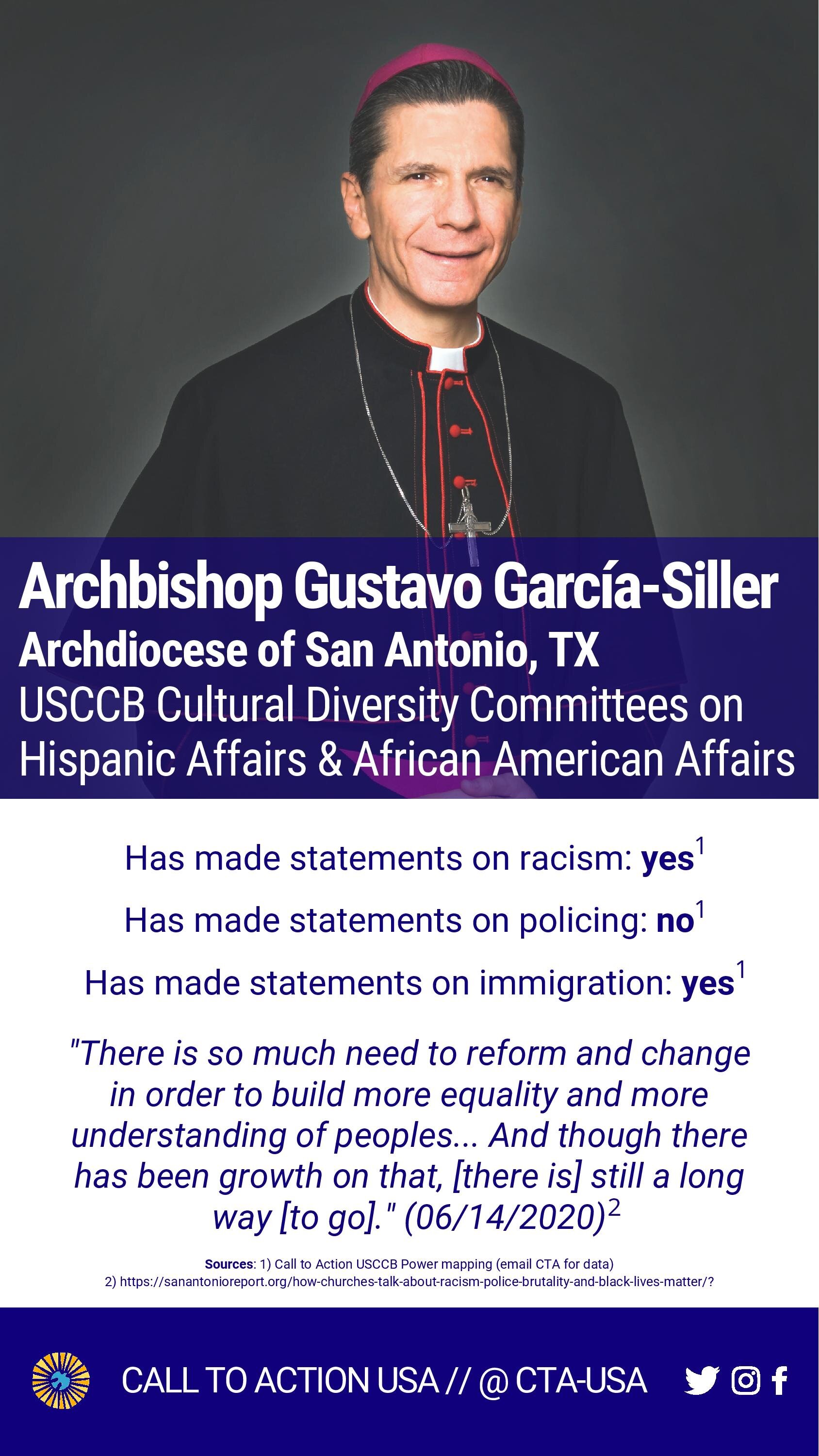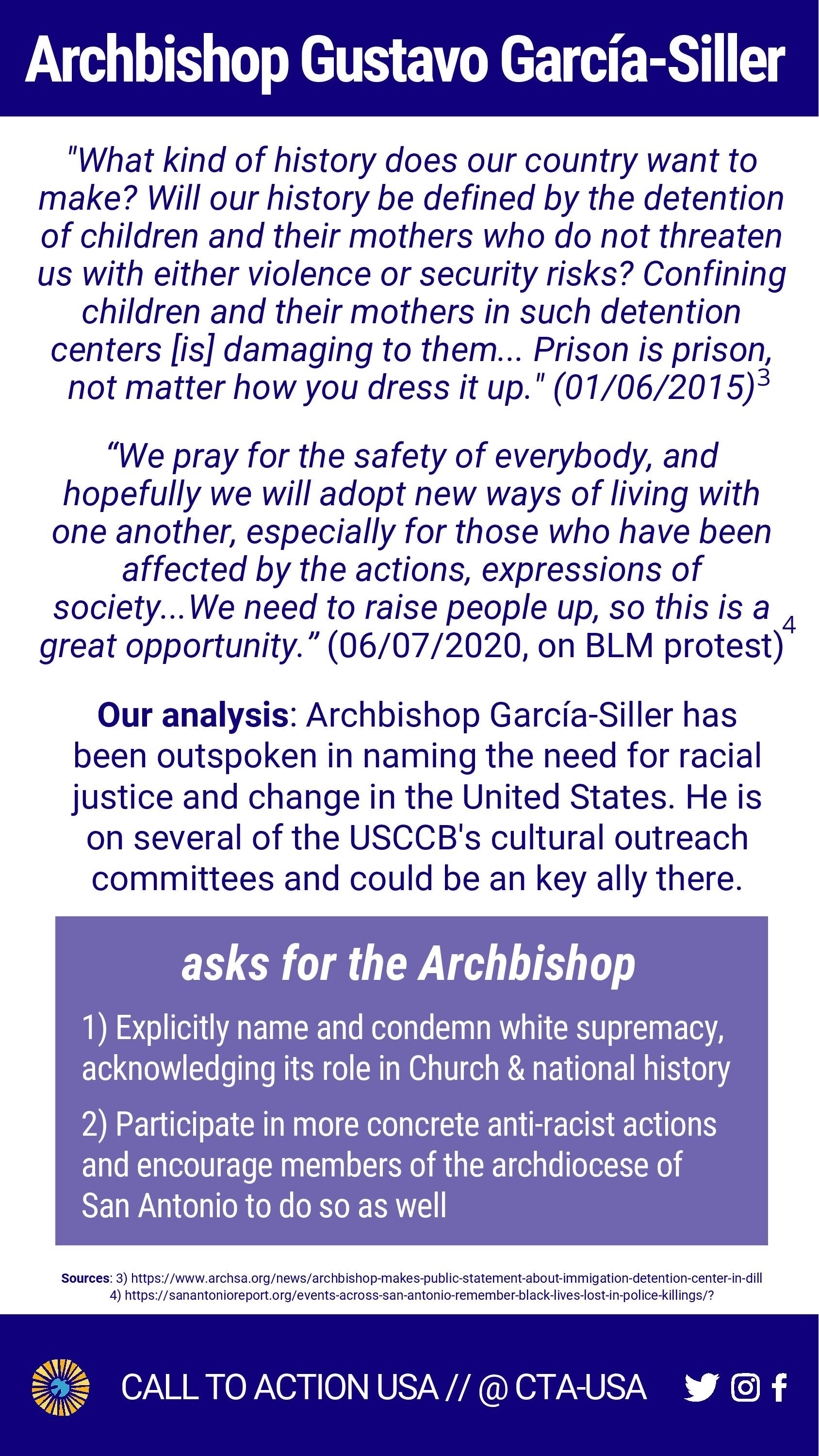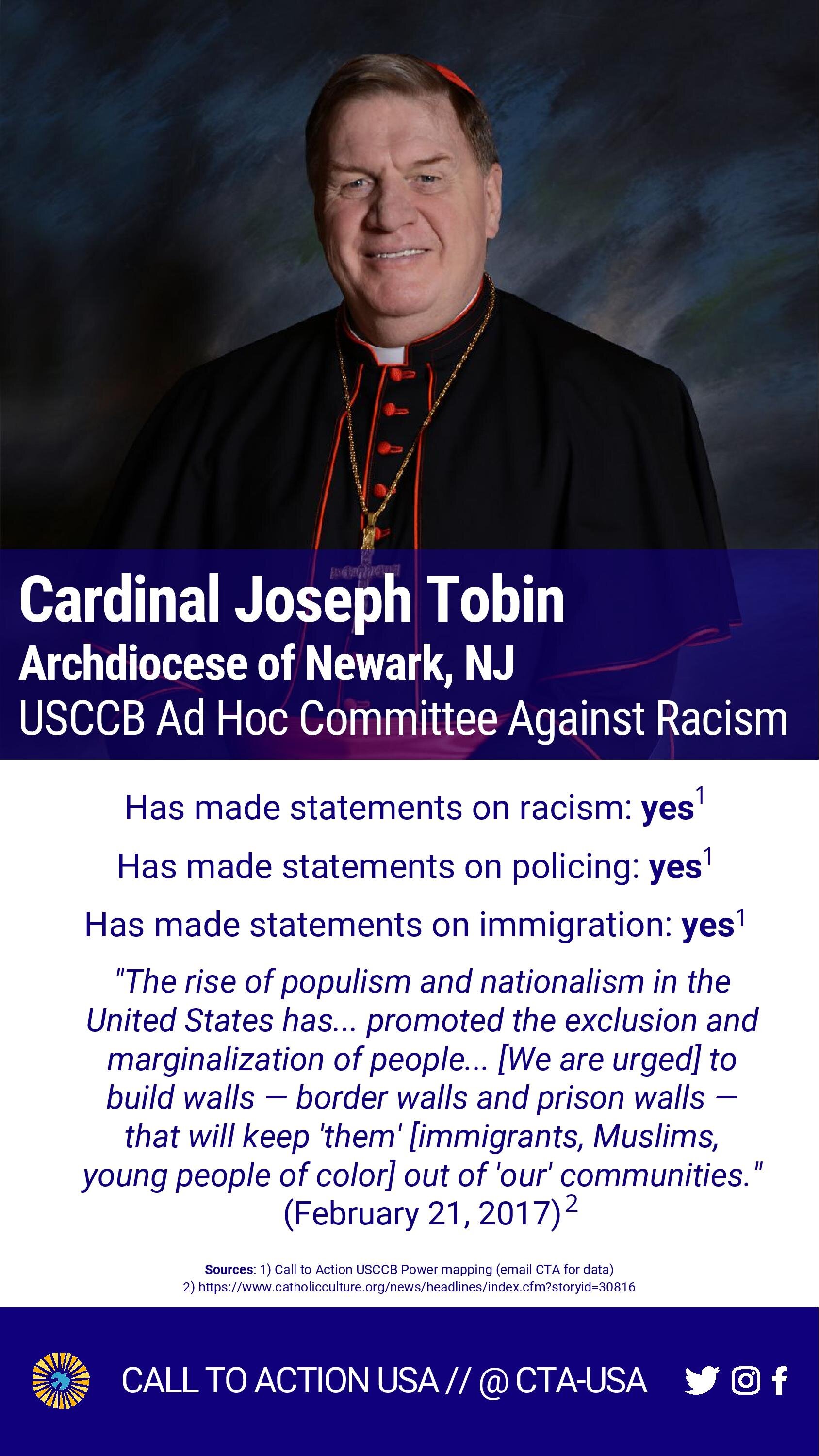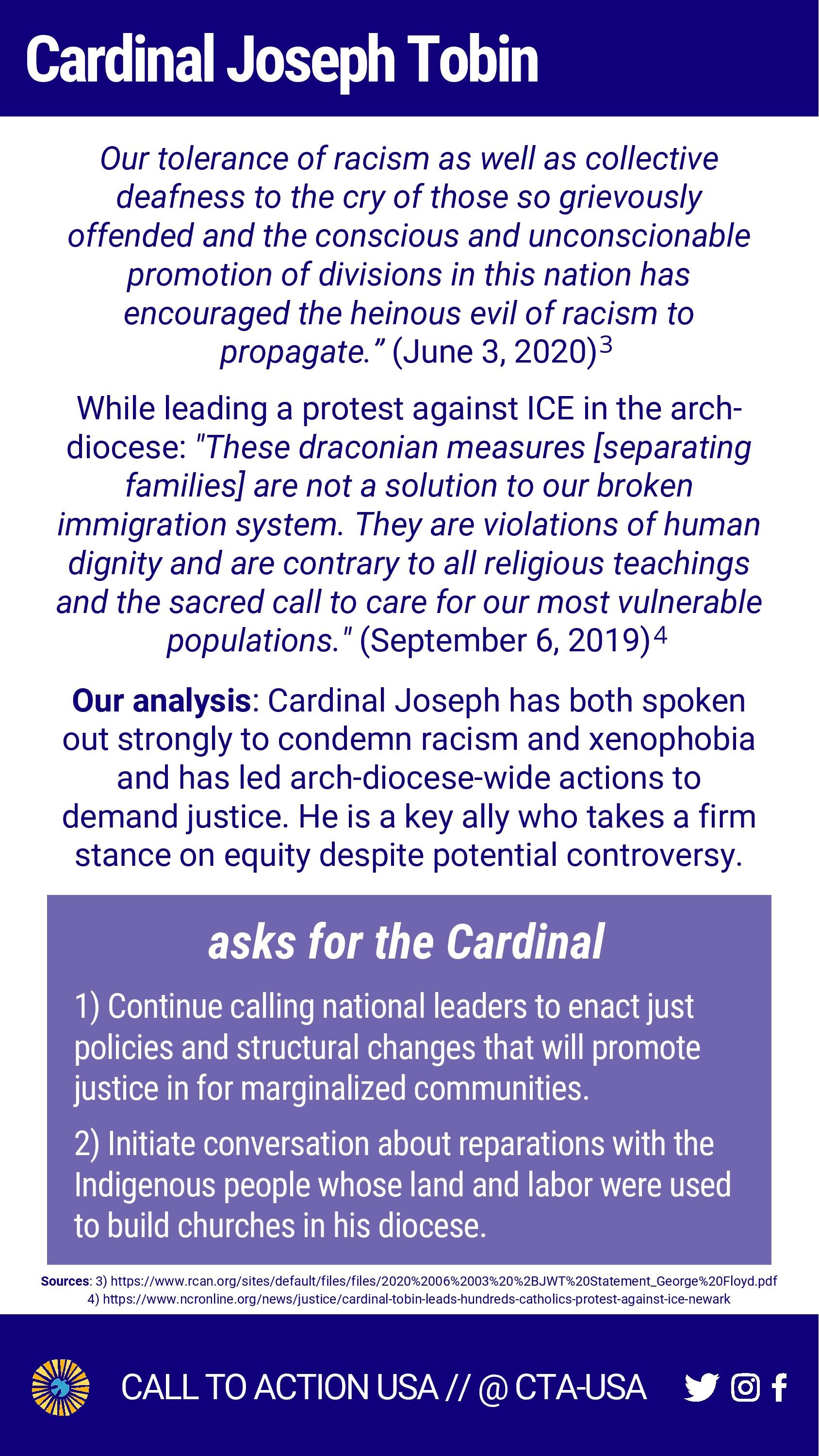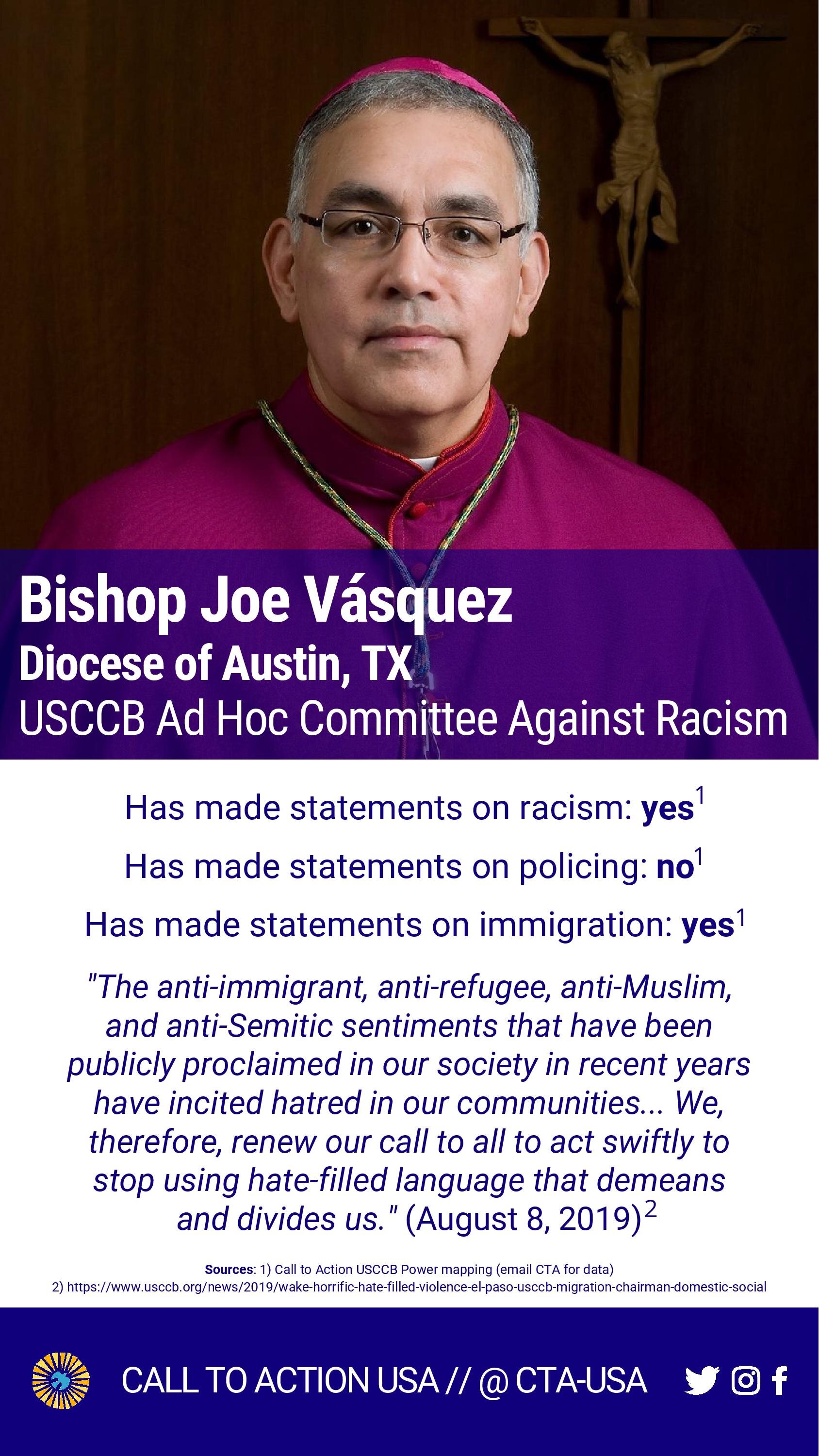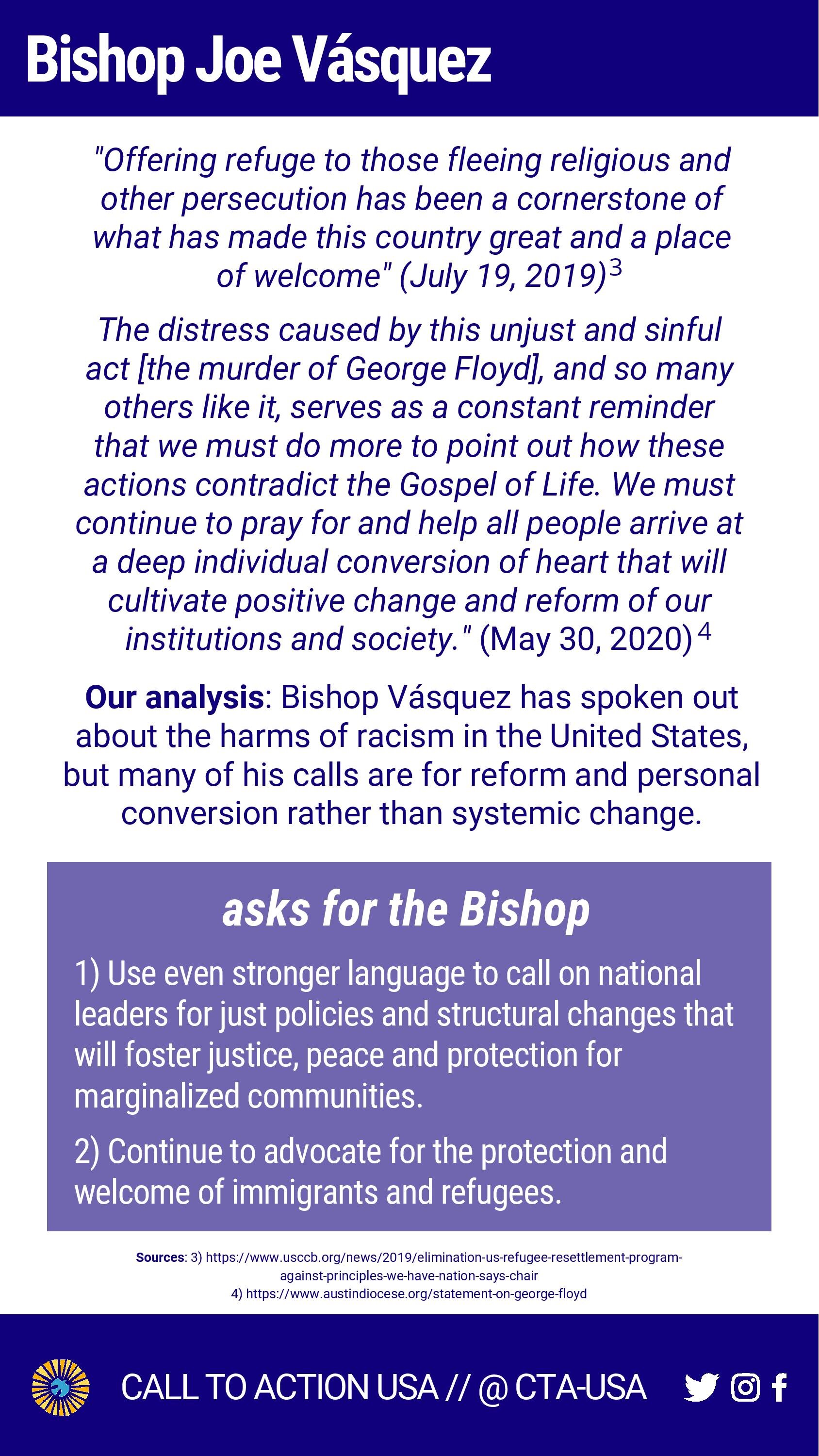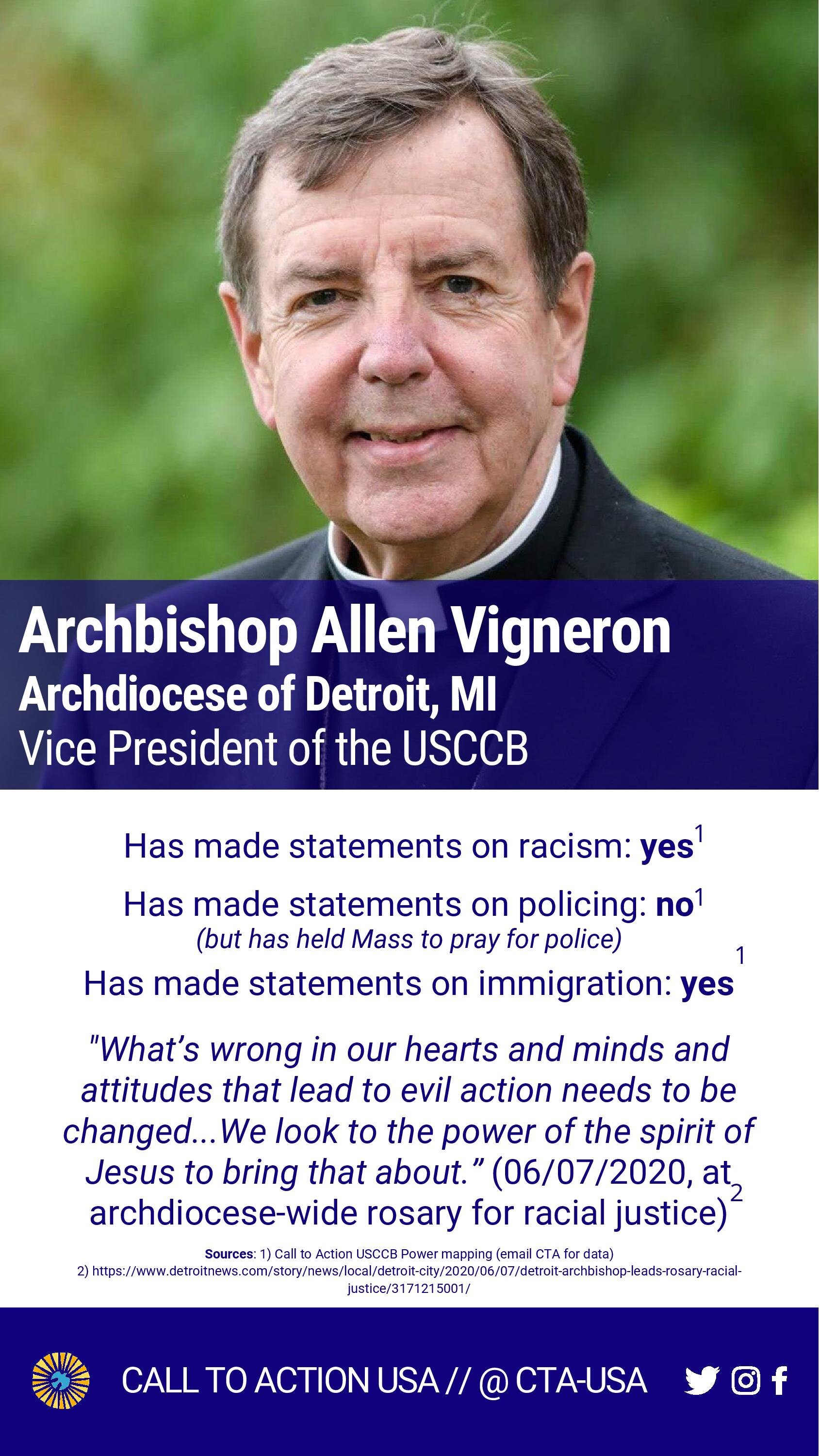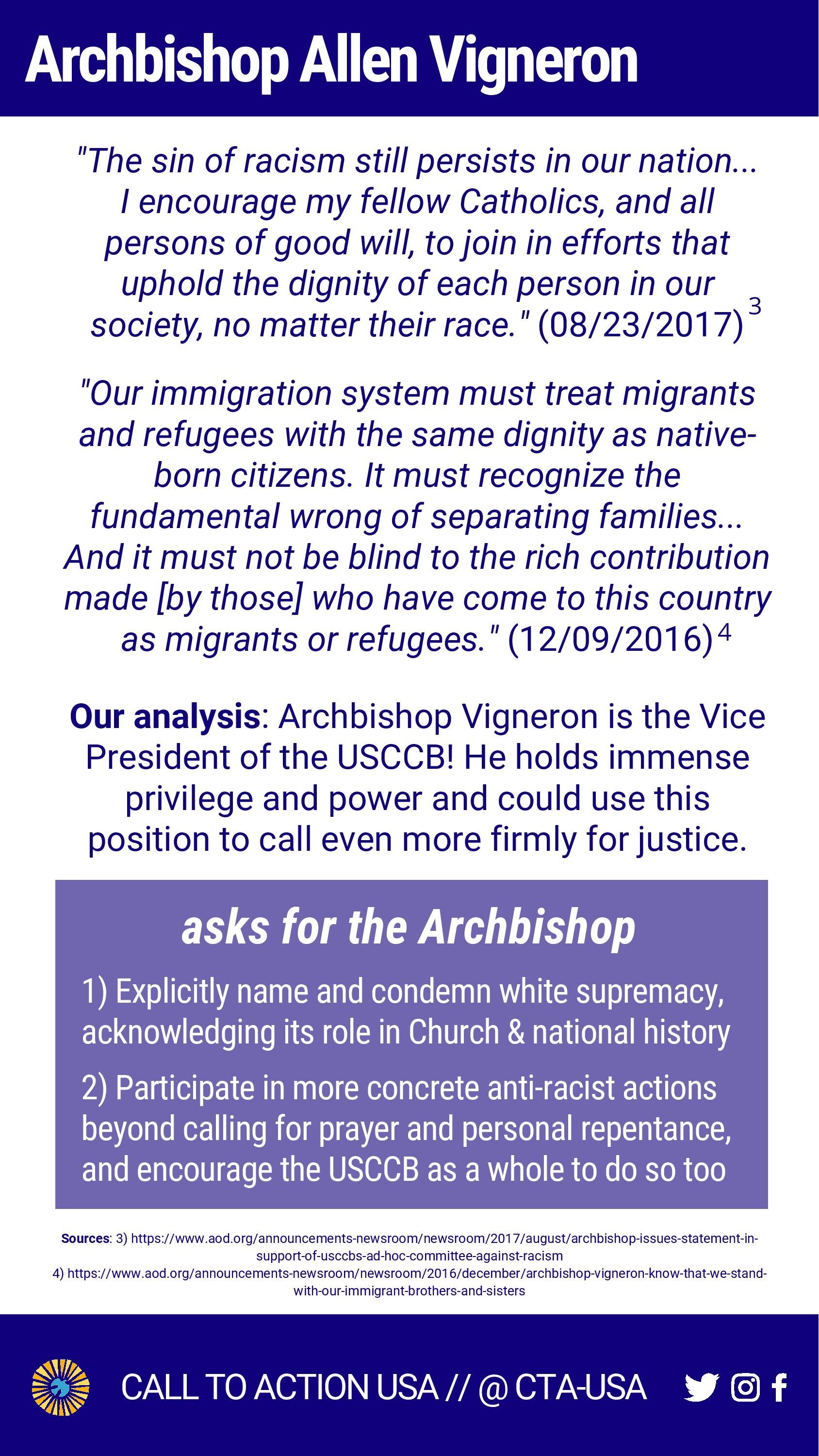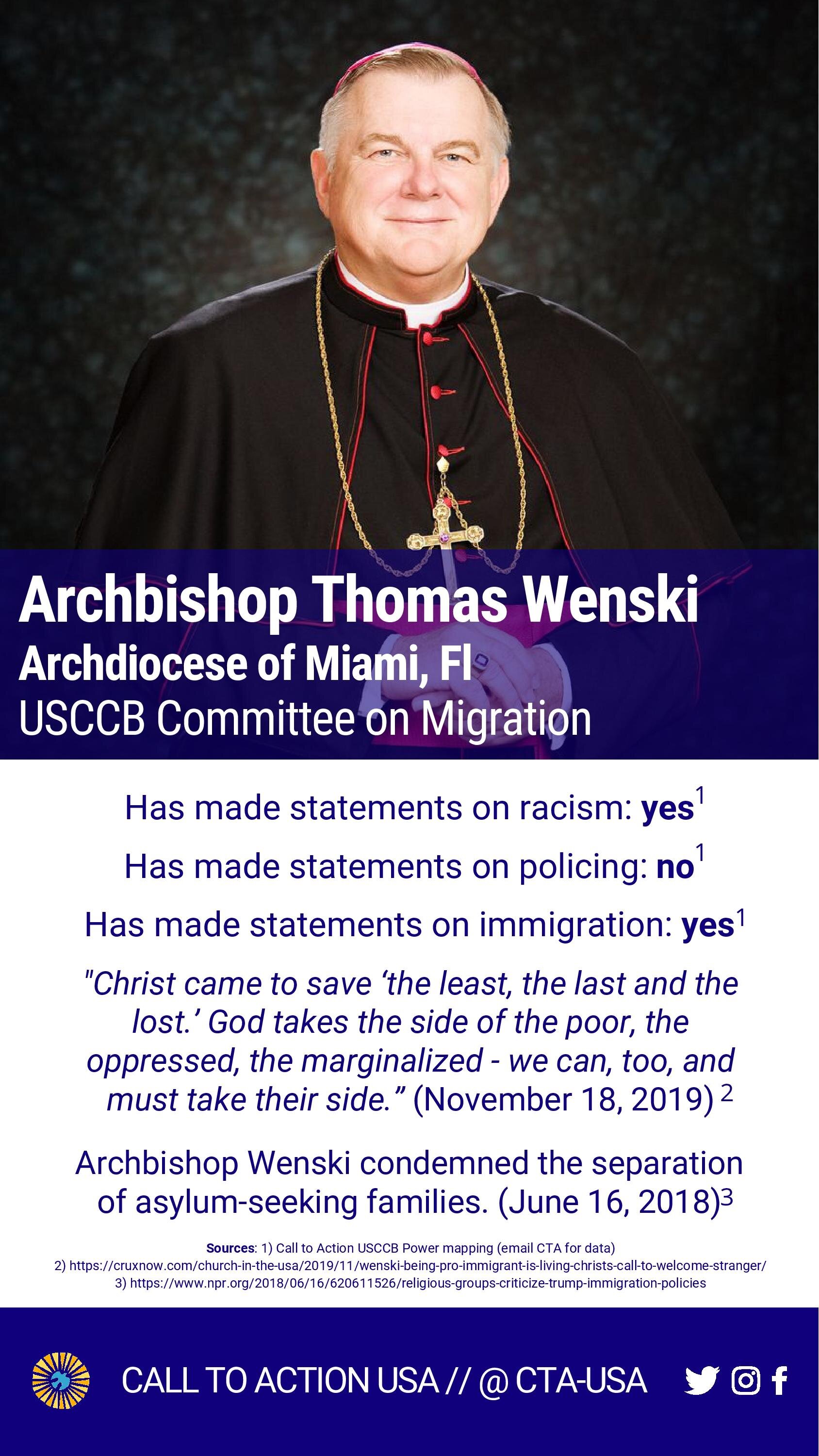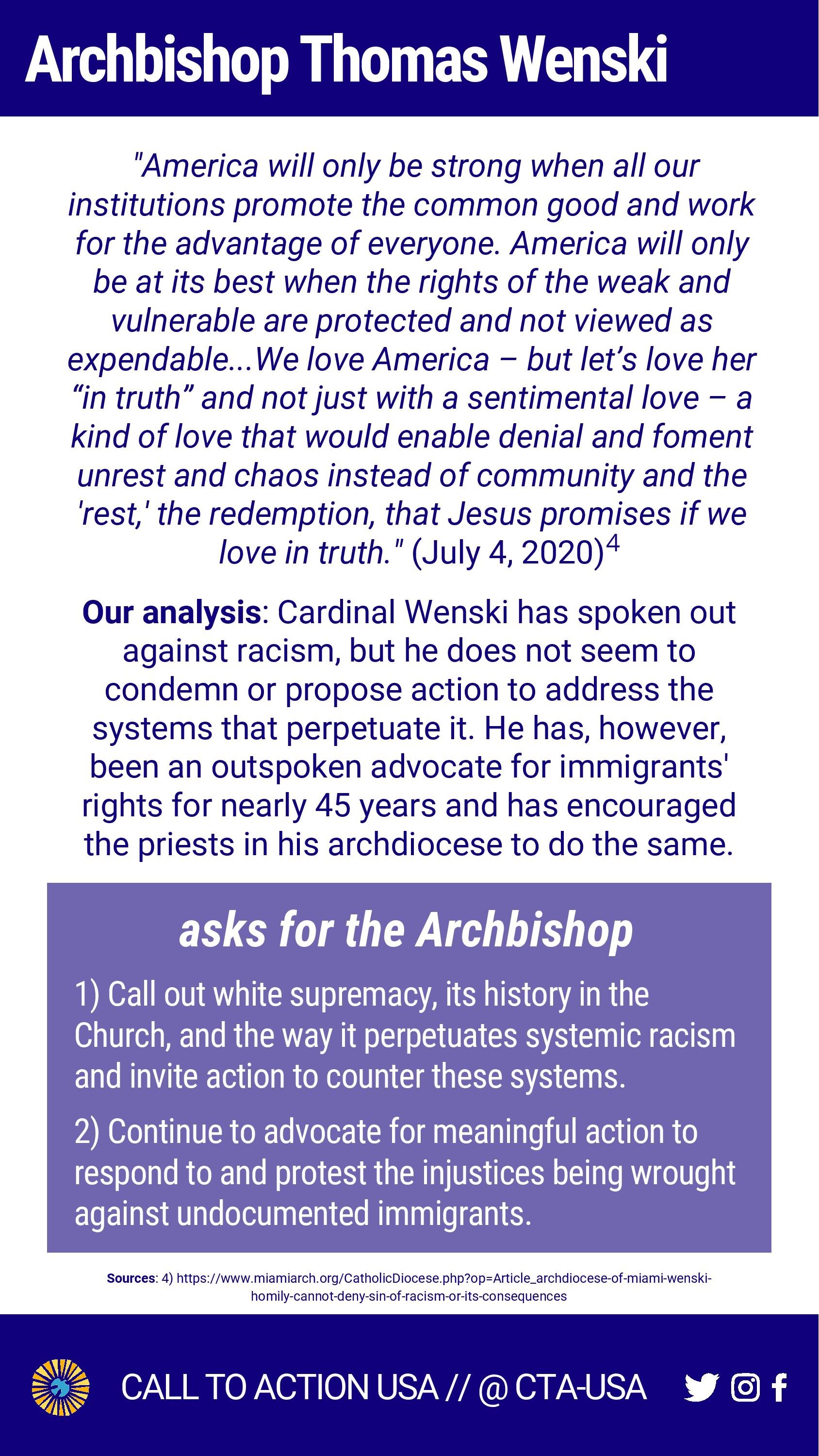To dismantle racism, Catholics must hold our bishops (and ourselves) accountable
How CTA’s Bishop Anti-Racism Scorecard project is pushing for greater accountability this Advent
Relationships are at the heart of Catholic identity. The church’s social justice tradition reminds us that we are not alone. We are called to “family, community, and participation,” as social and spiritual beings connected to God, our fellow human beings, and the entire created world.
In this Advent season, Call To Action members are examining the relationships that we, as lay Catholics, hold with members of the US hierarchy. The relationship between laity, lay movements, and the US bishops has long been a contentious one. Since our founding in 1976, Call to Action has been firmly committed to holding our bishops accountable. We are an empowered movement of lay Catholics, deeply committed to the rights and responsibilities we have by virtue of our baptism.
For the past few months Call To Action’s Lobbying Team has been working on an initiative to build relationships in the work for racial justice, increasing accountability and transparency in the relationship between bishops and the laity.
We have conducted extensive research on a core group of US bishops, tracking their statements on racism, police violence, and immigration. Today, we are making our preliminary research available to CTA members in the form of our Bishop Anti-Racism Scorecards. These cards track key members of the United States Conference of Catholic Bishops, particularly their statements and silences on racial justice.
Our research found that many bishops and cardinals in the United States are key leaders and potential partners in the church-wide movement to ensure racial justice. They have spoken and acted prophetically about the need to dismantle white supremacy and racism. Others have work to do and have fallen silent when they should have spoken out. Like all Catholics, (especially white Catholics who have significant work to do in the struggle for racial justice), these bishops have growing edges and room to embrace a stronger racial justice witness.
And that’s where the scorecards come in. On each card, you’ll find a brief analysis of the particular bishop’s statements (or non-statements) on racial justice issues, and then a set of recommendations (“asks for the Bishop”) for how you can encourage that bishop to take further action on racial justice, especially if you are a member of his diocese.
The word “encouragement” is important here. CTA members designed these cards as relational tools to encourage accountability and transparency. As our pastors and our leaders, bishops should be accountable to the laity whom they shepherd and serve. These cards and their research allow the laity to be informed about their bishops’ public stances on racial justice, and they give the laity tools for lobbying their local bishop and building relationships in the struggle for racial justice.
With a shared commitment to racial justice, a commitment to radical transparency and accountability, and strong relationships between bishops, the clergy, and the laity, we can build a movement for racial justice in Catholicism that contributes to the global movement to dismantle white supremacy. It is our hope that this Advent project contributes to that goal, and that laity all over the US and the global church take up similar research and accountability efforts. This project will also continue past Advent and into the new year: we will create scorecards for more bishops and use the cards to take action. To work on this project, sign up for the Lobbying Working Group email list.
-John Noble, Lobbying Working Group leader
(Click each scorecard to view as a PDF file and download.)



